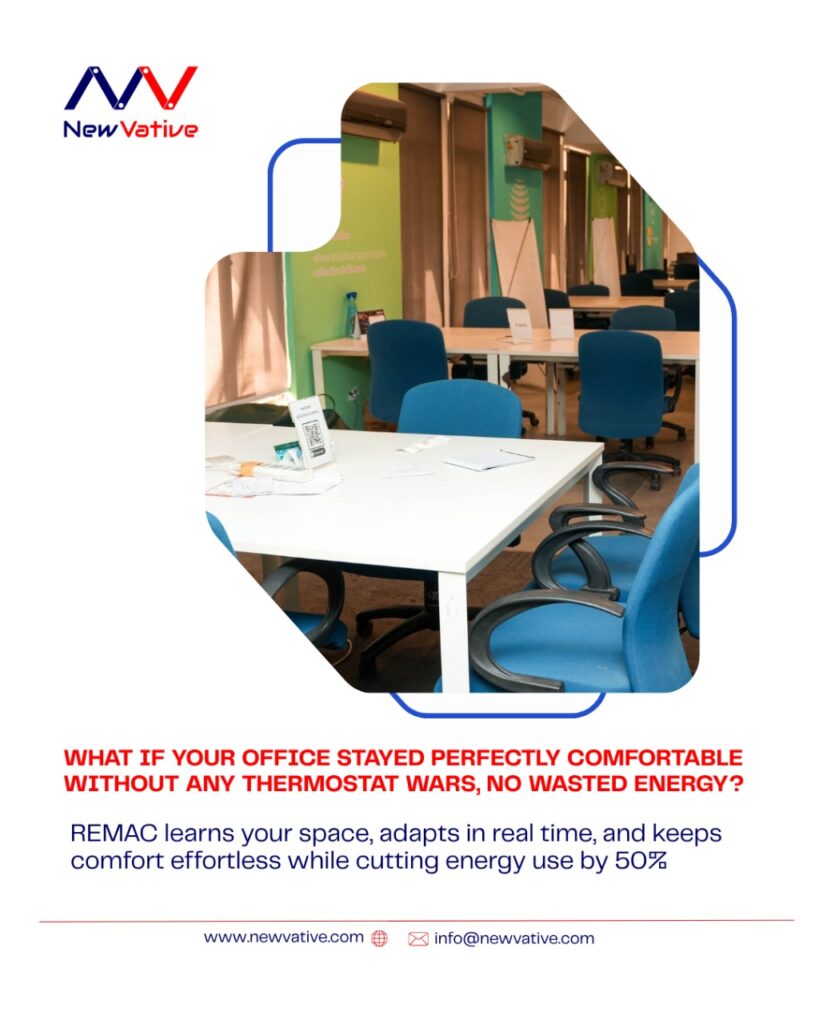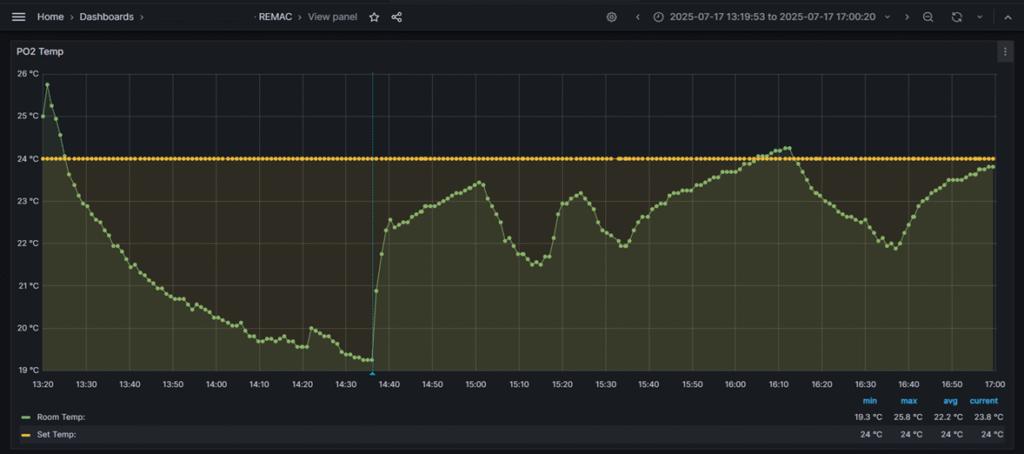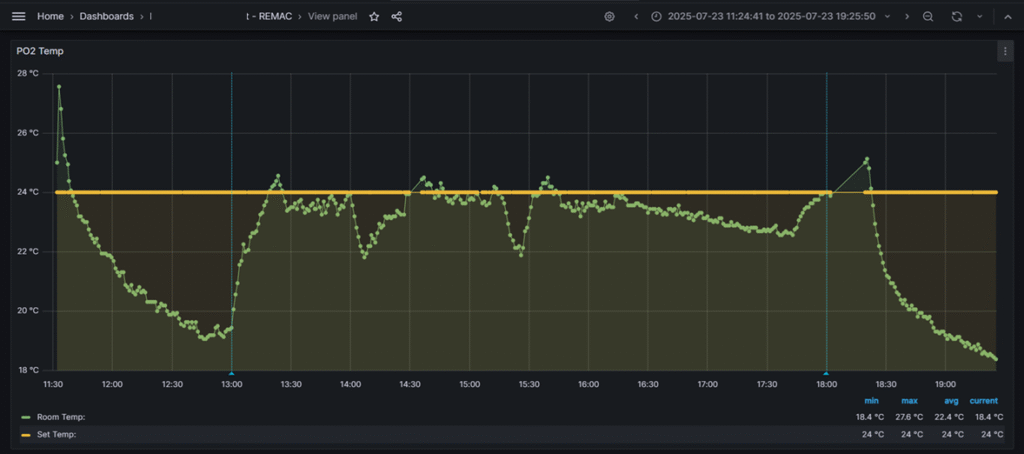1. Introduction
Coworking spaces are no longer just niche offices; they have become vital centers of collaboration and innovation worldwide.
Flexible memberships, shared resources, and diverse users create dynamic, lively environments, but they also make efficient energy use a real challenge.
Among energy expenses, air conditioning stands out as a major cost and environmental impact factor.
Unlike traditional offices with predictable occupancy, coworking spaces see constant flux, which makes managing AC usage particularly tricky.
2. Energy Challenges in Coworking Spaces
Unpredictable and uneven occupancy patterns are characteristic of coworking spaces. Some rooms may be packed in the morning and empty by afternoon, while shared desks fluctuate throughout the day.
Traditional AC systems, which run on fixed schedules or manual controls, often miss these nuances, cooling empty areas unnecessarily.
Users adjusting thermostats independently without coordination leads to inconsistent temperature settings.
People sometimes forget to switch off AC units when leaving, or set very low temperatures hoping to “feel comfortable,” which actually wastes power.
Since energy bills in coworking spaces can account for up to 20% of operational costs, such inefficiencies add up quickly.
Environmentally, this wasted energy contributes to increased carbon emissions, complicates green certification goals, and adds strain to local power grids, particularly during heatwaves or peak demand periods.
REMAC, an AI-powered AC management system, has emerged as a game-changer, leveraging smart technology to adapt to these fast-moving rhythms.
By optimizing cooling in real time, REMAC matches comfort needs while cutting waste and operating costs, making it an ideal fit for coworking environments.

3. How REMAC Addresses AC Efficiency
REMAC leverages occupancy sensors, temperature and humidity monitors, and outdoor weather data to create a holistic view of space usage and environmental conditions.
Its intelligent algorithms analyze real-time inputs to control AC units smartly, turning them off in empty rooms, preventing overcooling, and adjusting settings dynamically based on actual needs.
The system’s modular design allows phased deployment, starting with priority zones and scaling to cover entire buildings or networks of coworking spaces.
REMAC’s approach contrasts with fixed manual control, offering continuous adaptation that reduces energy waste while ensuring tenant comfort.

Energy Savings from Optimal Temperature Adjustment:
Results in energy wastage by 7% (when you overcool, it eventually consumes more energy). In one experiment, when REMAC takes control, as indicated by the blue vertical line, the temperature is stabilised to around 24 degrees, which saves around 30% energy.
This demonstrates how even minor, automated adjustments through REMAC can deliver substantial energy efficiency benefits for coworking spaces.
When REMAC was switched off at 4 PM (as shown by the blue dotted line), users manually adjusted the air conditioning back to around 18°C. This indicates that in the absence of automated regulation, users tend to overconsume energy, leading to higher costs and inefficiency.
The graph underscores REMAC’s importance in maintaining behavioral discipline and preventing unnecessary cooling in shared environments.

4. Key Findings from REMAC at Coworking Spaces
The REMAC study, conducted across several coworking locations, has produced some compelling results that underline the powerful impact of AI-driven AC management in flexible workspaces.
Significant Reduction in AC Runtime
One of the standout outcomes has been the consistent reduction in air conditioner runtime by more than 20%.
This means the cooling systems run less frequently while still maintaining an optimal and comfortable environment for occupants.
By intelligently adjusting the operation based on real-time occupancy and environmental data, REMAC prevents unnecessary cooling in empty rooms or during off-peak periods, leading to substantial energy savings.
Energy and Cost Savings
The energy savings observed have translated directly into notable cost reductions. In larger coworking spaces with multiple rooms and shifting occupancy, monthly electricity bills dropped by thousands of dollars.
This aligns well with broader industry data reports from the International Energy Agency (2023), which estimates that smart control systems can reduce cooling energy consumption by between 20% and 50%, depending on building and climate factors.
Enhanced Comfort and Reduced Thermal Conflicts
User comfort was a frequent focus during the study. Tenants reported fewer temperature-related complaints and appreciated the steady, consistent room temperatures.
This improvement is crucial in coworking spaces, where differing personal preferences often spark thermostat disputes.
The AI’s behavior-aware temperature management helped balance individual comfort needs without constant manual intervention, fostering a more pleasant work atmosphere.
Lower Carbon Footprint
By decreasing electricity consumption, coworking spaces using REMAC have successfully lowered their operational carbon footprints.
This finding is consistent with global studies showing that improving AC efficiency through intelligent control is a key lever for reducing greenhouse gas emissions in commercial buildings.
AC System Longevity
Interestingly, the optimized control also results in reduced wear and strain on AC equipment. The smoother operation cycles and elimination of excessive on/off switching extend the lifespan of AC units.
This translates into lower maintenance costs and fewer disruptions, a significant operational advantage for coworking space operators.
5. Behavioral and Operational Benefits
Managing temperature in coworking spaces isn’t just about technology; it’s deeply tied to human behavior and experience.
One of the biggest frustrations in shared spaces is the “thermostat war,” where competing preferences over temperature lead to constant manual adjustments and discomfort.
Research confirms this affects collaboration and even well-being. A 2023 study published in SAGE Journals found that dissatisfaction with temperature settings can lead to reduced social interaction and overall dissatisfaction in shared workspaces.
This is significant because healthy social connections are key to coworking’s value proposition.
The behavioral dimension also extends to energy use patterns. Occupants often forget or neglect to turn off AC units when leaving a room or set them excessively cold in an attempt to “feel comfortable,” unknowingly wasting energy.
Transparent monitoring and automated control through AI systems greatly reduce these human errors. Systems like REMAC log AC usage, provide feedback to building managers, and help enforce sensible usage patterns, fostering accountability without finger-pointing.
Moreover, numerous studies in workplace psychology emphasize the importance of consistent physical comfort for productivity and mental focus.
Research from Harvard’s T.H. Chan School of Public Health shows that optimal temperature and air quality can improve cognitive performance by up to 61%.
By automating climate control with behavioral insights, coworking spaces deliver stable, comfortable environments that boost tenant satisfaction and productivity, creating a positive feedback loop.
Operationally, this behavioral shift and system automation reduce wear on HVAC equipment since unnecessary cycling and overrides are minimized.
This translates into lower maintenance costs and fewer service disruptions, which are benefits that both operators and users notice.
6. Practical Recommendations for Coworking Operators
- Begin with a detailed energy audit to understand where inefficiencies lie.
- Deploy AI-driven AC control systems, such as REMAC, gradually, targeting high-use or problem areas first.
- Install occupancy and environmental sensors to provide accurate real-time data.
- Share energy consumption data openly with tenants to motivate cooperative behavior.
- Include energy and comfort goals in sustainability policies to attract socially conscious clients.
- Conduct regular HVAC maintenance to keep systems performing optimally.
Coworking spaces are shaping the future of work, but their dynamic nature makes energy management complex.
REMAC provides a smart, scalable solution that fits the unique use patterns and social dynamics of these spaces. By combining AI with behavioral insights, REMAC effectively reduces energy waste, lowers costs, improves comfort, and supports sustainability goals.
For coworking operators committed to efficiency and tenant satisfaction, embracing intelligent climate control is no longer optional; it’s essential.
Ready to take your coworking space’s AC efficiency to the next level?
Contact NewVative today for a demo of REMAC and experience the future of smart cooling.
[email protected]
www.newvative.com
References
- Li, X., et al. (2024). Potential of artificial intelligence in reducing energy and carbon emissions in buildings. Nature Communications.
- International Energy Agency (2023). The Future of Cooling: Opportunities for Energy-Efficient Air Conditioning.
- Honeywell (2025). Study on AI adoption in commercial building management.
- Oxford University Behavioral Energy Study (2024).
- Harvard T.H. Chan School of Public Health. Impact of Indoor Environmental Quality on Cognitive Function.
- SAGE Journals (2023). Impact of temperature satisfaction on social interaction in coworking spaces.
- Archie App. (2025). The Latest Coworking Statistics & Industry Trends.
NewVative Technologies. REMAC AI-powered AC automation platform. https://newvative.com/ac-automation-energy-intelligence/

